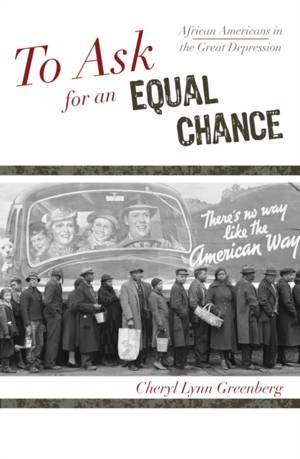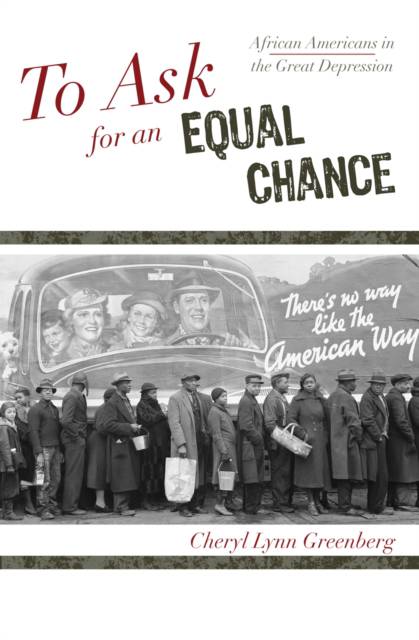
Wil je zeker zijn dat je cadeautjes op tijd onder de kerstboom liggen? Onze winkels ontvangen jou met open armen. Nu met extra openingsuren op zondag!
- Afhalen na 1 uur in een winkel met voorraad
- Gratis thuislevering in België vanaf € 30
- Ruim aanbod met 7 miljoen producten
Wil je zeker zijn dat je cadeautjes op tijd onder de kerstboom liggen? Onze winkels ontvangen jou met open armen. Nu met extra openingsuren op zondag!
- Afhalen na 1 uur in een winkel met voorraad
- Gratis thuislevering in België vanaf € 30
- Ruim aanbod met 7 miljoen producten
Zoeken
€ 77,95
+ 155 punten
Uitvoering
Omschrijving
The Great Depression hit Americans hard, but none harder than African Americans and the working poor. To Ask for an Equal Chance explores black experiences during this period and the intertwined challenges posed by race and class. "Last hired, first fired," black workers lost their jobs at twice the rate of whites, and faced greater obstacles in their search for economic security. Black workers, who were generally urban newcomers, impoverished and lacking industrial skills, were already at a disadvantage. These difficulties were intensified by an overt, and in the South legally entrenched, system of racial segregation and discrimination. New federal programs offered hope as they redefined government's responsibility for its citizens, but local implementation often proved racially discriminatory. As Cheryl Lynn Greenberg makes clear, African Americans were not passive victims of economic catastrophe or white racism; they responded to such challenges in a variety of political, social, and communal ways. The book explores both the external realities facing African Americans and individual and communal responses to them. While experiences varied depending on many factors including class, location, gender and community size, there are also unifying and overarching realities that applied universally. To Ask for an Equal Chance straddles the particular, with examinations of specific communities and experiences, and the general, with explorations of the broader effects of racism, discrimination, family, class, and political organizing.
Specificaties
Betrokkenen
- Auteur(s):
- Uitgeverij:
Inhoud
- Aantal bladzijden:
- 200
- Taal:
- Engels
- Reeks:
Eigenschappen
- Productcode (EAN):
- 9780742551886
- Verschijningsdatum:
- 1/07/2009
- Uitvoering:
- Hardcover
- Formaat:
- Genaaid
- Afmetingen:
- 161 mm x 233 mm
- Gewicht:
- 453 g

Alleen bij Standaard Boekhandel
+ 155 punten op je klantenkaart van Standaard Boekhandel
Beoordelingen
We publiceren alleen reviews die voldoen aan de voorwaarden voor reviews. Bekijk onze voorwaarden voor reviews.











